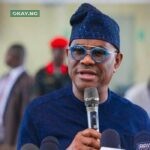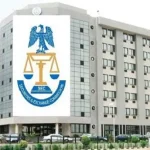After years of anticipation, the National Space Research and Development Agency (NASRDA) is poised to implement its critical space regulation and licensing functions. President Bola Tinubu has approved a N20 billion take-off fund, marking a pivotal moment for Nigeria’s burgeoning space sector. This development, as revealed by NASRDA Director-General Dr. Matthew Adepoju, aims to address long-standing regulatory gaps and bolster national security.
Dr. Adepoju, in an interview with the News Agency of Nigeria (NAN), highlighted the urgency of this initiative. “When I raised that memo stating that our space can no longer be unregulated, Mr. President graciously approved the take-off fund of N20 billion few months ago. This is to enable us to commence the space regulation and spectrum management in Nigeria,” he stated.
For years, despite being mandated by the NASRDA Act (2010), the agency has been unable to effectively regulate Nigeria’s space activities since its establishment in 1999. This lack of oversight has created potential security threats and economic vulnerabilities. “Although times and lots of activities happen that have security implications, but if we don’t take charge of our space sector, it will continue to be misused,” Dr. Adepoju warned.
The regulation will encompass three key segments: upstream (deep space), midstream (satellite operations), and downstream (ground stations and service utilization). “In between these three sectors, there are activities that must be regulated, otherwise Nigerians will be short-changed. People have to be licensed and issued guidelines, the spectrum within Nigeria has to be monitored, and the agency has been granted this power since 2010 and this has lots of benefits,” explained Dr. Adepoju.
The licensing process is now open to both public and private operators, covering areas such as satellite imagery, geographic information systems, and telecommunications. This move is crucial to prevent exploitation and ensure that the benefits of space technology are realized by Nigerians. “If unregulated, geographical data intelligence could be exploited by non-state actors for illicit activities,” he emphasized.
While the N20 billion fund has been approved, NASRDA is navigating bureaucratic procedures to access it. “Within the framework of what is possible for us to do now, we’ve set up the platform and we are commencing our regulatory and licensing functions,” Dr. Adepoju confirmed.
The impact of this regulation extends beyond security, promising to drive economic diversification and promote local content development. Major industries, including oil and gas, shipping, and telecommunications, heavily rely on space-based services, making effective oversight essential. Furthermore, the licensing process is expected to generate revenue for the nation.
This initiative is a significant step towards ensuring Nigeria’s space sector operates within a structured and secure framework, safeguarding national interests and fostering sustainable growth.








